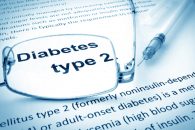Clinical Definition
Type 2 diabetes is an endocrine disease that occurs when the pancreas produces insulin; however, the insulin does not act (i.e., the body does not respond) as it should or there is not enough of it to get sugar or glucose into the cells for the body to process and use as energy. This imbalance, known as insulin resistance, causes the blood glucose to rise. The result is a buildup of abnormally high levels of sugar, or glucose, in the blood.
In Our Own Words
Obesity, poor diet, and a sedentary lifestyle are powerful predictors of type 2 diabetes, but not everyone has the same susceptibility. In type 2 diabetes, cells of the human body start to become increasingly resistant to the hormone insulin. Cells need insulin to help them use blood sugar (glucose). When the pancreas cannot produce enough insulin, glucose builds up in the blood stream, unable to move properly into the cells where it is processed for energy. Being overweight contributes to the development of type 2 diabetes because excess fatty tissue can make cells much more resistant to insulin.
A chronic, progressive condition, type 2 diabetes is most common in people ages 45 and over who are overweight or obese. With the obesity epidemic, however, cases of type 2 diabetes can be seen increasingly early.
Symptoms and Side Effects
- Excessive thirst
- Frequent urination
- Hunger and fatigue
- Unexplained weight loss
- Sores or cuts that are slow to heal
- Blurred vision
- Recurrent infections, yeast infections


